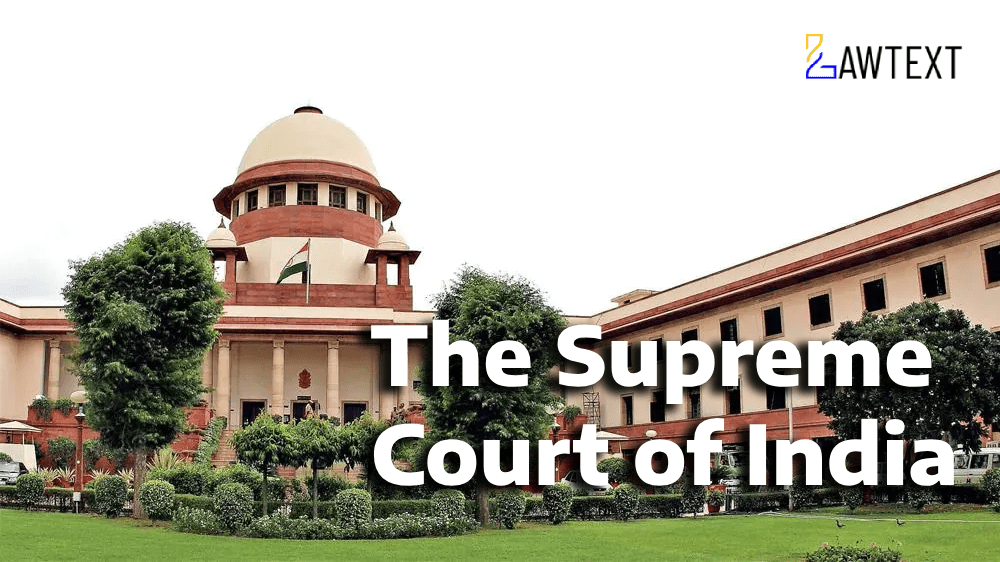Supreme Court Quashes Proceedings Against Company in INR 8 Crore Duty Evasion Case Due to Immunity Under Settlement Commission. Appellant-Company exempted from prosecution as per immunity granted by the Settlement Commission, Gujarat High Court's order overturned.

CASE NOTE & SUMMARY
The Supreme Court quashed criminal proceedings against the Appellant-Company, accused of evading countervailing duty (CVD) to the tune of INR 8 crores. The Court found that the company was granted immunity under the Settlement Commission, making further prosecution inconsistent with the law. The decision sets aside earlier orders by the Gujarat High Court and the Special Judge (CBI), Ahmedabad.
1. Background:
- The Appellant-Company, engaged in manufacturing and exporting cosmetics, was accused of conspiring with Kandla SEZ officials between 2001 and 2004.
- It was alleged that the company cleared goods into the Indian market by paying CVD on invoice value rather than the Maximum Retail Price (MRP), causing a loss of INR 8 crores to the exchequer.
2. Revenue Authorities' Allegations:
- Show Cause Notices were issued in 2004-2005, alleging the company violated the Standards of Weights and Measures Act, 1976, Customs Tariff Act, 1975, and Central Excise Act, 1944 by not declaring MRP.
3. Investigation and Settlement:
- The Central Bureau of Investigation (CBI) filed an FIR in 2005 under Section 120B (Conspiracy) of the Indian Penal Code, 1860, and Section 13(1)(d) of the Prevention of Corruption Act, 1988.
- The Appellant-Company was granted immunity under Section 32K of the Central Excise Act, 1944, Section 127H of the Customs Act, 1962, and IPC, 1860 by the Settlement Commission in 2007.
4. Legal Proceedings:
- The Special Judge (CBI) rejected the company's discharge application in 2017, leading the company to file a Criminal Revision Application before the Gujarat High Court, which was dismissed in 2023.
5. Supreme Court Ruling:
- The Supreme Court quashed the proceedings, noting that the company was entitled to a refund of CVD and had been granted immunity from prosecution.
- The Court emphasized that mere registration of an FIR does not constitute initiation of prosecution, referring to earlier decisions in H.N. Rishbud v. State (Delhi Admn.) and Abhinandan Jha v. Dinesh Mishra.
Acts and Sections Discussed:
- Indian Penal Code, 1860: Section 120B (Criminal Conspiracy), Section 420 (Cheating)
- Prevention of Corruption Act, 1988: Section 13(1)(d) (Criminal Misconduct by Public Servant)
- Customs Tariff Act, 1975: Section 3(2) (Valuation for CVD)
- Central Excise Act, 1944: Section 4A(2) (Valuation based on MRP), Section 32K (Immunity by Settlement Commission)
- Customs Act, 1962: Section 127H (Immunity)
- Standards of Weights and Measures Act, 1976
Ratio Decidendi:
The Supreme Court ruled that the company's immunity under the Settlement Commission precluded further prosecution, and the findings of the Commissioner of Customs (Appeals) favoring the company rendered any criminal proceedings groundless.
ISSUE OF CONSIDERATION
BACCAROSE PERFUMES AND BEAUTY PRODUCTS PVT. LTD VERSUS CENTRAL BUREAU OF INVESTIGATION & ANR.
Citation: 2024 LawText (SC) (9) 63
Case Number: CRIMINAL APPEAL NO. 3216 OF 2024
Date of Decision: 2024-09-06
Case Title: BACCAROSE PERFUMES AND BEAUTY PRODUCTS PVT. LTD VERSUS CENTRAL BUREAU OF INVESTIGATION & ANR.
Before Judge: (ABHAY S. OKA J. , AUGUSTINE GEORGE MASIH J. )
Appellant: BACCAROSE PERFUMES AND BEAUTY PRODUCTS PVT. LTD
Respondent: CENTRAL BUREAU OF INVESTIGATION & ANR.

